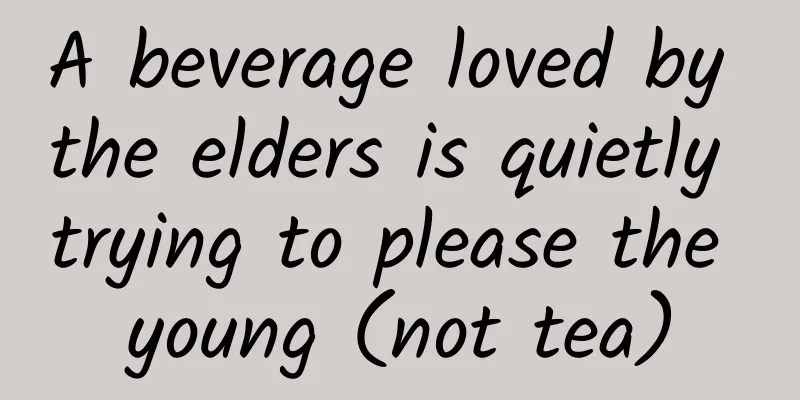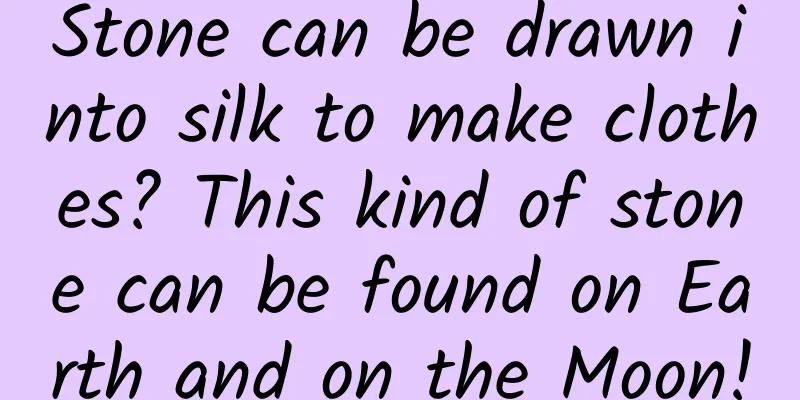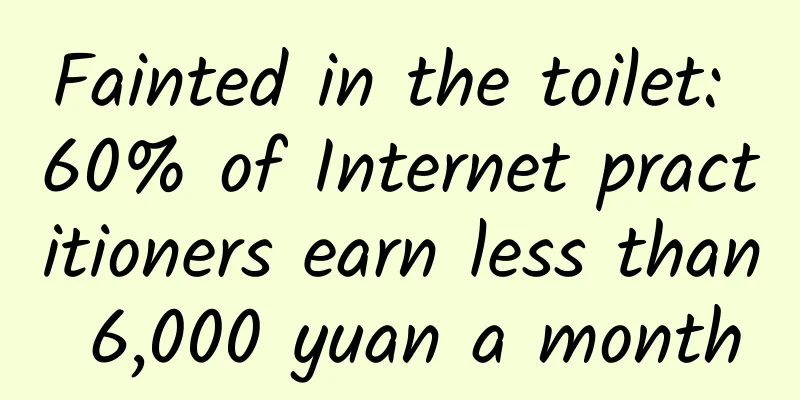A beverage loved by the elders is quietly trying to please the young (not tea)

|
Do you drink alcohol regularly? When I was a child, I watched adults drink a few glasses of wine whenever they had time, and I was secretly curious about the taste of white wine. I secretly took a sip, choked and coughed, and then I never dared to try it again. When growing up, some people start to like the taste of baijiu and are proud of Chinese baijiu. But for more people, the meaning of baijiu lies in family reunion, and drinking a few glasses with elders to make them happy. For the younger generation, baijiu no longer seems to be a mainstream drink. Why don’t we love baijiu anymore? The new liquor standard will be officially implemented on June 1st, and the liquor you don’t like may also be expelled from the liquor category... 01 Baijiu, the establishment of its status as a god The Chinese people's love for drinking can be traced back thousands of years. Ever since our ancestors mastered the technology of brewing wine from grains, the aroma of wine has been everywhere. At that time, because there was no distillation technology, most people drank turbid wine, which led to the saying "A cup of turbid wine, my home is thousands of miles away, and I have no way to return until Yanran is engraved." Ordinary people could only drink liquor in large quantities in the late Ming and early Qing dynasties. At that time, the area of sorghum cultivation increased, and although it tasted slightly worse as food, the quality of the distilled liquor was better than that of other grains, and the alcohol content was also higher. Therefore, the history of liquor in the modern sense is not that long. 02 Strict standards, some wines are not worthy of being called Baijiu With the development of the industry, the types and prices of liquor are becoming more and more diversified. We often joke that some liquors of average quality are not worthy of being called liquor. On June 1 this year, the revised national standards such as "Terminology of the Liquor Industry" and "Terminology and Classification of Beverage Alcohol" were officially implemented, and some wines were really kicked out of the liquor team. Nowadays, wine that can still be called white wine needs to meet two major requirements: Grains must be used as the main raw material for brewing🌾 The new definition of liquor is a distilled liquor made from grains as the main raw materials, with big qu, small qu, bran qu, enzyme preparations and yeast as saccharification and fermentation agents, and is made through cooking, saccharification, fermentation, distillation, aging and blending. The emphasis here is on "grains". Some potatoes are no longer used as raw materials for brewing liquor. For example, sweet potato liquor can no longer be considered liquor. That’s not all. Even if some edible alcohol needs to be added in the production process, alcohol must be brewed from grains. No food additives allowed ⚠️ In the past, in order to enhance the aroma, flavor and thickness of liquor, it was allowed to use moderate amounts of food additives, such as edible flavors. After the implementation of the "new national standard", food additives can no longer be added to liquor. Liquor made with edible alcohol as the base and food additives added cannot be called liquor, but can only be called "flavored liquor" and is a blended liquor. Simply put, after the implementation of the new national standard, liquor must be brewed from grains and have no additives. The concept of liquor has since become more traditional and purer. To be honest, the implementation of the new national standard will not change the drinking habits of our elders. After drinking bulk liquor all their lives, they definitely cannot stop drinking it. In the long run, the new national standard is more about ensuring the safety of drinking and preventing companies from walking in gray areas or even engaging in false propaganda. Redefining liquor can help consumers better distinguish "liquor". In the future, the development of the liquor industry will be more standardized and the market will be more orderly. 03 Why do young people dislike liquor? Although the liquor industry is becoming increasingly regulated, it seems to be a foregone conclusion that young people do not like liquor. We have seen liquor manufacturers repeatedly try to please young people through cross-border and joint ventures. Even after the novelty wears off, young people still don’t like baijiu because of its spicy taste and the “drinking table culture” that is often associated with baijiu. At the wine table, young people are caught up in unequal power relations. They don’t want to drink but can’t refuse. "I did it first, you can do whatever you want" means "I did it first, you have to do it too." "Allergic to alcohol? That's an embarrassing excuse." Perhaps when the drinking culture disappears one day, young people will become more accepting of liquor. 04 Last words Finally, we want to emphasize that drinking alcohol is harmful to health. Drinking white wine, red wine and beer is not recommended. We may not be able to stop drinking forever, but we must stick to the bottom line of not drinking and driving, and not driving after drinking. Don't have any fluke mentality. The end of drunk driving will definitely be legal sanctions, just like the master in "Police Honor". Editor | Tang Tang Design | Sour |
<<: Why does pinching the back of a cat's neck make it feel like it's being acupunctured?
>>: Why do train attendants take away sleeper tickets? It turns out that...
Recommend
Kuaishou live broadcast promotion and traffic generation skills!
How effective is Kuaishou live streaming? Everyon...
A Beginner's Guide to Internet Finance Operations: An Article to Understand 6 Types of Internet Finance Products
I have been working in the wealth management depa...
For B-side operations, you should master the thinking patterns and common sense!
1. Discussion The reason for writing this article...
Android Polarr Photo Editor Pro v5.10.4 All powerful features unlocked
Whether you are a beginner or a photography exper...
7 essential skills for operators: Three communication skills to improve your operational efficiency (Part 4)
Without adequate communication, even the best ope...
How much does it cost to customize a driving school mini program in Bayannur?
In order to better penetrate into various industr...
What is a mud volcano?
Mud volcano is a kind of "fake volcano"...
The auto market is not peaceful during the transition period of new energy vehicle subsidies
In the 2018 version of the subsidy policy, Februa...
How to promote user sharing and dissemination?
For internet dogs, it is easy to organize an even...
How to control costs in the four stages of an activity?
This article is part of the “Ideology of Top Even...
Without it, you can't even play with your phone.
Regardless of whether they have actually come int...
Stay tuned! What should you do if you are assaulted or sexually harassed? You must know these things
Expert of this article: Zhu Guangsi, science writ...
A must-read for marketers! The underlying logic of hot products
What is a hot product? This is a good question an...
How to make your fans happy to accept your advertisement
I believe many of you have had this experience: y...
A complete set of activity operation planning and promotion ideas
The product is like a singer, and the operation i...









